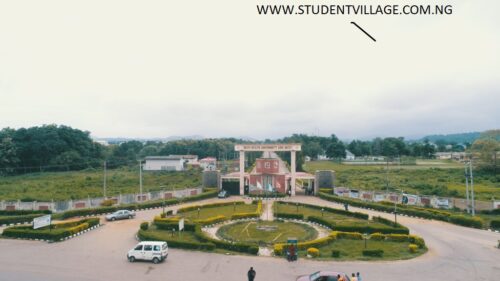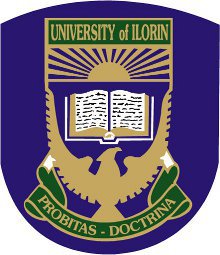Government Keypoints: International Organizations; International organizations are entities formed by the collaboration of multiple countries or states to address global issues, promote cooperation, and achieve common goals.
Study more government keypoints here
They vary in scope, focus, and structure, but they all aim to foster diplomacy, peace, economic development, and social progress on a global scale. Below, let’s delve into the specifics of several significant international organizations, evaluating their origins, objectives, structures, functions, achievements, problems, prospects, roles in world affairs, challenges, and potential solutions.
a. ECOWAS (Economic Community of West African States):
Origin:
ECOWAS was established in 1975 with the Treaty of Lagos. It aims to promote economic integration and cooperation among West African countries to foster economic growth, development, and stability in the region.
Objectives:
- Facilitating economic cooperation and integration.
- Enhancing economic stability and sustainable development.
- Promoting peace and security within the region.
Structure:
ECOWAS has a structure comprising various institutions like the Commission, Parliament, Court of Justice, and specialized agencies focusing on different aspects of regional integration.
Functions:
- Facilitating free trade and movement of goods and people among member states.
- Implementing policies for economic development and regional stability.
- Mediating conflicts and promoting peace within the region.
Achievements:
- Establishment of a common market and the ECOWAS Trade Liberalization Scheme.
- Mediation efforts in regional conflicts, such as in Liberia and Sierra Leone.
- Facilitating cooperation in areas like infrastructure development and agriculture.
Problems and Prospects:
- Challenges include persistent conflicts, limited resources, and issues with implementation and enforcement of policies.
- Prospects involve deeper economic integration, improved governance, and increased regional stability.
b. OAU (Organization of African Unity) & AU (African Union):
Origin:
OAU was formed in 1963 to promote unity, solidarity, and cooperation among African countries. AU succeeded the OAU in 2002, aiming to deepen integration and address contemporary challenges.
Objectives:
- OAU focused on decolonization, sovereignty, and solidarity among African nations.
- AU aims at deeper integration, peace, security, and sustainable development in Africa.
Structure:
Both organizations have/had a structure comprising various organs, including the Assembly, Commission, Peace and Security Council, and specialized agencies.
Functions:
- OAU worked on anti-colonialism, conflict resolution, and promoting African unity.
- AU focuses on peacekeeping, governance, economic integration, and human rights.
Achievements:
- OAU played a key role in decolonization movements across Africa.
- AU has undertaken peacekeeping missions, promoted human rights, and worked on economic integration through initiatives like Agenda 2063.
Problems and Prospects:
- Challenges include ongoing conflicts, governance issues, and economic disparities.
- Prospects involve deeper integration, increased continental cooperation, and addressing developmental challenges.
c. Commonwealth:
Origin:
The Commonwealth, established in 1949, comprises nations previously part of the British Empire. It promotes cooperation, development, and democracy among its diverse member states.
Objectives:
- Foster cooperation and friendship among member countries.
- Promote democracy, human rights, and economic development.
Structure:
The Commonwealth functions through various institutions like the Commonwealth Secretariat, Commonwealth Games Federation, and Commonwealth of Learning.
Functions:
- Facilitating trade, cultural exchange, and development assistance among member states.
- Advocating for democratic principles, human rights, and sustainable development.
Achievements:
- Promotion of democracy and human rights across member nations.
- Aid and development programs benefiting member states, particularly smaller or developing countries.
Problems and Prospects:
- Challenges include inequality among member states, strained relations among some nations, and criticism for limited effectiveness.
- Prospects involve increased cooperation, addressing inequality, and leveraging collective strength in global affairs.
d. OPEC (Organization of the Petroleum Exporting Countries):
Origin:
Formed in 1960, OPEC aims to coordinate and unify the petroleum policies of its member countries to ensure fair and stable prices in the international oil market.
Objectives:
- Protect the interests of oil-producing nations.
- Ensure stable oil prices and a steady income for member countries.
Structure:
OPEC comprises member countries with a decision-making structure based on consensus among member states.
Functions:
- Regulating oil production to influence global oil prices.
- Negotiating with oil-consuming nations and other stakeholders in the energy sector.
Achievements:
- OPEC has at times influenced global oil prices by regulating production quotas.
- Provided a collective voice for oil-producing nations in global energy discussions.
Problems and Prospects:
- Challenges include internal disagreements, fluctuations in oil demand, and competition from non-OPEC oil sources.
- Prospects involve adapting to changing energy landscapes, diversifying economies, and maintaining unity among member states.
e. UNO (United Nations Organization):
Origin:
Formed in 1945 after World War II, the UN aims to maintain international peace and security, promote cooperation, and address global challenges collectively.
Objectives:
- Prevent conflicts and maintain peace.
- Foster cooperation on humanitarian, social, economic, and environmental issues.
Structure:
The UN comprises various bodies like the General Assembly, Security Council, Secretariat, specialized agencies (like UNICEF and WHO), and programs.
Functions:
- Peacekeeping, conflict resolution, and humanitarian aid.
- Promoting sustainable development, human rights, and global health.
Achievements:
- Peacekeeping missions in various conflict zones globally.
- Development of conventions and agreements on human rights, environmental protection, and disarmament.
Problems and Prospects:
- Challenges include limited enforcement capabilities, Security Council reform, and funding issues.
- Prospects involve greater cooperation, reform efforts, and adapting to emerging global challenges.
f. African Petroleum Producers Association (APPA):
Origin:
Established in 1987, APPA aims to promote cooperation among African oil-producing countries to ensure mutual benefits and sustainable development.
Objectives:
- Foster collaboration among member states in the petroleum industry.
- Promote investment, technology transfer, and sustainable development in oil-producing nations.
Structure:
APPA consists of oil-producing countries in Africa with a structure facilitating cooperation and dialogue among member states.
Functions:
- Facilitating information sharing, technology transfer, and capacity building in the petroleum sector.
- Advocating for the interests of member countries in global energy discussions.
Achievements:
- Encouraged cooperation and dialogue among member states in the oil sector.
- Facilitated information exchange and capacity-building initiatives.
Problems and Prospects:
- Challenges include fluctuating oil prices, technological gaps, and competition from non-African oil producers.
- Prospects involve technology transfer, investment, and sustainable development in the oil industry across member states.
Evaluation, Roles in World Affairs, Challenges, and Solutions:
i. Evaluation of Operations:
- Assess the effectiveness of policies, decision-making processes, and achievements in meeting the organization’s objectives.
ii. Roles in World Affairs:
- Examine contributions to global peace, economic stability, development, and diplomatic relations.
iii. Challenges and Solutions:
- Identify challenges like conflicts, resource constraints, and governance issues, and propose solutions such as enhanced cooperation, policy reforms, and resource mobilization.
In conclusion, international organizations play pivotal roles in addressing global challenges, promoting cooperation, and fostering peace and development. Their effectiveness depends on adaptability, cooperation







